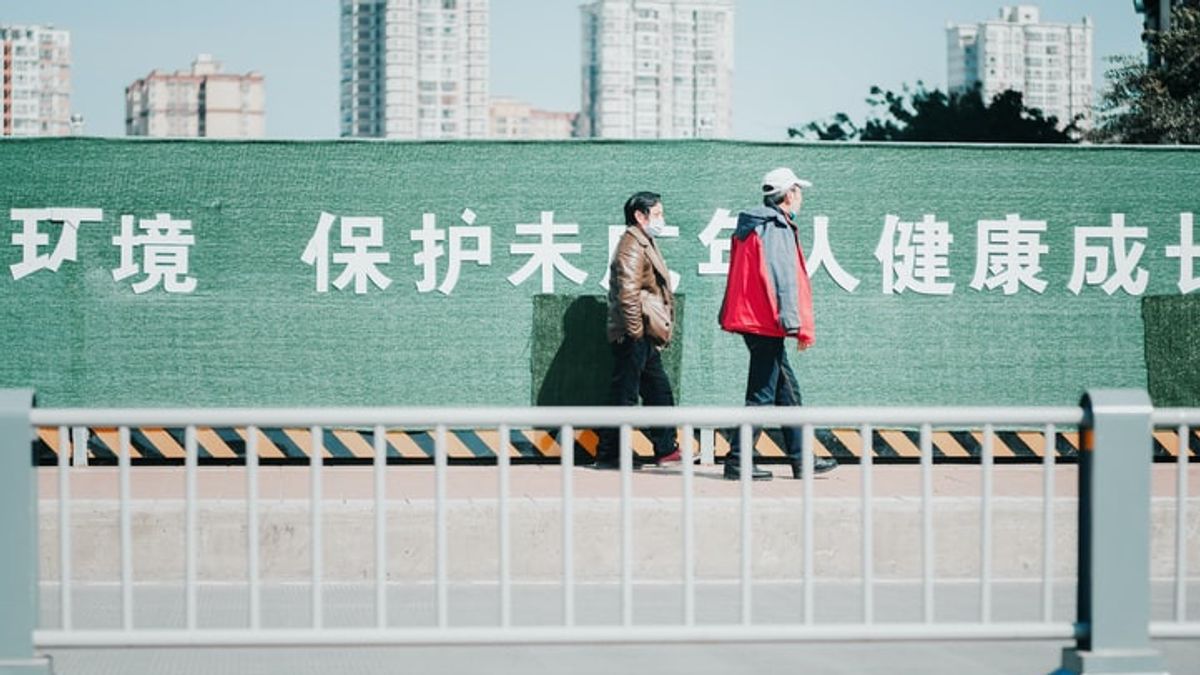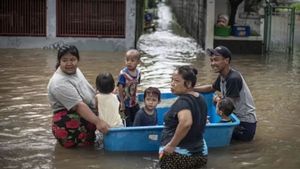JAKARTA - Japan will ban foreign nationals from entering the country starting today, Monday, December 28 until the end of January 2021. This comes after several cases of the new variant of COVID-19 were recorded in Japan, the Japanese Ministry of Foreign Affairs said in a statement.
Japanese nationals and long-term residents can still enter, but are required to self-quarantine for 14 days. Quoting CNN, the Tokyo government confirmed two cases of a new variant of COVID-19 involving people who had recently returned from the UK.
The two new cases are the first to be found outside of the country's airport quarantine. On Friday, December 25, five other travelers from the UK were detected to have the new variant of COVID-19 when they arrived at Japan's international airport.
The new variant of the coronavirus in Britain was first detected in September. As of November, about a quarter of the COVID-19 cases in London came from a new variant of the coronavirus.
This number reached nearly two-thirds of cases in mid-December. This new COVID-19 variant is potentially more contagious. Since its discovery, more than 40 countries have restricted travel from the UK.
In some cases, travelers from other countries that have reported cases with these variants. Starting Monday, for example, the US will require all travelers from the UK to test negative for COVID-19 within 72 hours of boarding a flight to the US. Passengers will also be asked to provide documentation of their laboratory results.
Various levels of restrictions have been announced by countries such as Denmark, Ecuador, Greece, Portugal, Spain and Ukraine. Still others have banned travel or suspended flights from the UK, such as Argentina, Belgium, Brazil, Canada, China, Colombia, Germany, India, Italy, the Netherlands, Russia and Spain.
Other countries have also begun to extend travel bans or restrictions to other countries where new variants have been detected, such as in Denmark, the Netherlands and Australia. A number of countries are also imposing travel restrictions from South Africa, where a different variant has been reported, according to the World Health Organization's (WHO) Maria van Kerkhove.
Indonesia's closest country, Singapore, has reported its first case of the new variant of COVID-19 on Friday 25 December. The new variant of the corona virus is known to attack a 17-year-old girl who had studied in England.
The 17-year-old Singaporean girl infected with the new variant of the coronavirus has been studying in the UK since August and returned to Singapore on December 6 and is in self-isolation upon arrival. He had a fever the next day and was confirmed positive for COVID-19 on December 8. The Singapore Ministry of Health said that the Singapore National Public Health Laboratory was researching a new variant of the coronavirus.
The English, Chinese, Japanese, Arabic, and French versions are automatically generated by the AI. So there may still be inaccuracies in translating, please always see Indonesian as our main language. (system supported by DigitalSiber.id)













